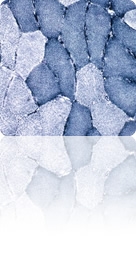

My ongoing research is focused on the role played by proinflammatory cytokines as a signaling molecules in the repairing-remodeling processes in muscles of patients with different processes with a relevant systemic inflammatory component, which share muscle dysfunction and/or loss of muscle mass. The strategic outcome is to identify potential molecular targets of therapies against muscle dysfunction andmuscle cachexia. More
Our research is mainly addressed to lung diseases such as Chronic Obstructive Pulmonary Disease (COPD) and lung cancer, but also muscle problems in aging, fibromyalgia and scoliosis. Our research includes clinical assessment, in vivo and in vitro physiological studies, and molecular biology procedures. The studies, which are mainly performed in humans, are complemented by animal models of some of the above mentioned conditions or associated factors. More
EFFECTS OF HYPOXEMIA AND RESPIRATORY LOADS ON THE VENTILATORY MUSCLES: ROLE OF TNF-ALPHA AND OXIDATIVE STRESS.
Muscle dysfunction is probably the most extensively studied extrapulmonary manifestation in COPD. Recently, overexpression of inflammatory cytokines, muscle damage, and repair have been demonstrated in ventilatory muscles of COPD patients. These phenomena have been attributed to respiratory overloading and/or associated hypoxemia. More
CACHEXIA AND NON-METASTATIC LUNG CANCER: ROLE OF MUSCLE CYTOKINES AND OXIDATIVE STRESS.
Main objective: to explore the redox status, the local expression of proinflammatory cytokines, as well as their relationships with the fibrillar phenotype of peripheral muscles of patients with non-metastatic non-small cell lung cancer (NSCLC) with and without cachexia. Methods: a cross-sectional case-control and case-case study design will be used. Thirty-two individuals (4 groups) will be included according to the following groups: both patients with NSCLC (stages II & III) and cachexia (weight loss > 10% body weight) and without cachexia; patients with chronic obstructive pulmonary disease (COPD) without lung cancer; and healthy volunteers. More
STUDY OF EXACERBATIONS OF COPD IN SPAIN (ECOS).
The mechanisms of Chronic Obstructive Pulmonary Disease exacerbations (COPDE) are not well known, and the role of non-infectious factors have not been established. The long-term objective of this study is to get a better understanding of the pathobiology of ECOPD to, eventually, identify clinical correlates (biomarkers) that may help to identify and diagnose them more precisely and to guide clinical practice more efficiently. We aim to estimate the prevalence of different factors that could be associated to the possible mechanism of exacerbation in a large cohort of patients with COPDE. Variables associated with having a COPDE, and variables associated to exacerbation severity and prognosis will also be identified. More
PHENOTYPIC CHARACTERIZATION & PROGRESSION OF COPD (PAC EPOC).
Objectives: 1) To characterize the phenotypic variability of patients who are admitted because their first exacerbation in the hospital. 2) To assess the potential association between clinical subtypes and clinical and functional progression of the disease. 3) To evaluate the relationships between clinical subtypes and the use of health resources and mortality. 5) To identify risk factors of repeated admissions to the hospital due to exacerbations of COPD. More
OXIDATIVE STRESS AND CYTOKINE EXPRESSION IN MUSCLES OF PATIENTS WITH FIBROMYALGIA.
Aims: (1) To evaluate (a) levels of oxidative and nitrosative stress, (b) expression of inflammatory cytokines, (c) sarcolemmal damage, & (d) the expression of molecules involved in muscle repair in skeletal muscles localized in both more and less symptomatic regions of patients with fibromyalgia (FM) during exacerbations; (2) To compare these findings with those obtained in more stable periods. More
Coordinator:
Joaquim Gea(ELIMINAR)
Tel:
93 248 31 38
Fax:
93 248 34 25
Pg Marítim, 25-29
08003 Barcelona
© Institut Hospital del Mar
d'Investigacions MèdiquesLegal Notice and Privacy Policy | Cookie Policy | Site Index | Accessibility | Find Us | Contact